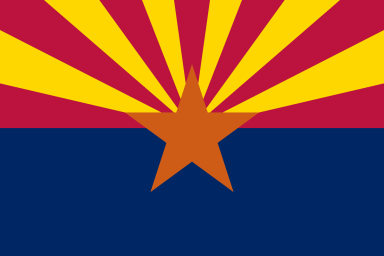West Virginia DUI Laws

DUIs are not uncommon in West Virginia, with more than 4,800 DUI arrests recorded in 2021 per the state’s Highway Safety Plan. To decrease these incidents and improve safety among road users, traffic authorities have been overseeing multiple initiatives. One of these is the creation of sobriety checkpoints. Another program involves sting operations against those who sell alcohol to underage individuals.
West Virginia is also one of 34 states with all-offender ignition interlock laws. Essentially, all convicted drivers in the Mountain State, whether they are first-time or third-time offenders, must install an ignition interlock device in their vehicle.
Despite these policies, being involved in a DUI-related accident remains a possibility, making it important to learn how West Virginia handles drunk driving cases. This guide has been created to give an overview of DUI laws in the state and provide information about the penalties convicted drivers can receive. In addition, this article educates dram shop owners on their rights and responsibilities and lists relevant resources victims can utilize.
General DUI Laws in West Virginia
Driving while in an impaired state is illegal in West Virginia. The Mountain State considers impairment as being under the influence of alcohol, controlled substances, or drugs.
Incidentally, under state law, moving a car is not the only way one can be considered to be driving. One just has to be in actual physical control of a vehicle to be classified as a driver.
Some situations where one can be seen as potentially in control of a vehicle include having the engine running or even just sleeping in the driver’s seat. Keep in mind that aside from trucks and cars, ATVs are viewed as vehicles in West Virginia.
One thing to note is that drivers cannot obtain a DUI on a private road. State law specifies that driving while intoxicated does not apply to cases involving someone’s exclusive property that is not open for public use. However, a vehicle operator causing bodily injury or death to others while on private property is enough grounds for a misdemeanor or felony charge.
Police officers in West Virginia employ two types of tests to check whether someone is intoxicated. One is field sobriety testing. Law enforcement personnel may order a suspected drunk person to perform a one-leg stand, a walk-and-turn, and the horizontal nystagmus test.
The other type is chemical testing. State law requires police officers to perform preliminary breath tests on a DUI suspect to determine whether to arrest them. Law enforcement may also decide to carry out secondary tests using breath or blood samples. But these secondary tests require a warrant from a circuit judge or magistrate unless the driver in question gives their written consent.
Speaking of consent, any vehicle operator in West Virginia is deemed to have given theirs if they are driving a motor vehicle. If the chemical tests show a blood alcohol concentration or BAC of 0.08% or more, that figure is considered “per se” or by itself as DUI. The BAC limit is stricter for commercial drivers, at 0.04%.
Aggravated DUI
A West Virginian commits aggravated DUI if their BAC is 0.15% or more. Individuals caught with that BAC level face higher penalties than those with BAC test results between 0.08% and 0.149%. The establishment of these consequences is crucial, as 47 fatalities caused by drivers who committed aggravated DUI were recorded in 2021.
Exemption of Cyclists
Bicycles are not considered vehicles in West Virginia. As such, no laws directly address whether drunk cyclists can commit DUI. However, they can be charged with disorderly conduct or public intoxication.
The penalties for these vary. Cyclists with a disorderly conduct charge have to deal with fines of up to $100 and 24 hours of jail time. Meanwhile, first-time offenders of the state’s public intoxication laws must contend with fines between $5 and $100. If caught the second time, they may face a maximum of 60 days in jail.
Underage DUI Laws in West Virginia
Individuals under 21 face stricter DUI laws than those of legal drinking age. One of these regulations is the zero-tolerance law. It means that underage vehicle operators with a BAC of 0.02% or more must face drunk driving-related penalties.
The need for such a law cannot be overstated. According to the CDC, 3.3% of high schoolers surveyed in 2021 drove after drinking alcohol in the past 30 days.
Besides the zero tolerance law, West Virginia traffic authorities oversee media campaigns that educate underage drivers about the importance of traveling sober. The reason for such campaigns is that vehicle operators between the ages of 16 and 20 are identified by state authorities as the second most at-risk group, after binge drinkers, to be affected by impaired driving.
Another way that the Mountain State seeks to decrease underage drinking is through its laws on alcohol consumption and possession. Both of these are illegal for individuals under 18. However, employees aged at least 18 can serve alcoholic liquor at licensed establishments. Other people may also furnish alcohol to individuals under 21 as long as they are related by marriage or blood.
DUI-Adjacent Laws in West Virginia
Open Container Laws
West Virginia does not allow passengers and drivers to possess open containers of alcoholic beverages in the passenger area of vehicles located on public highways. This restriction exists even if a car is not moving. Individuals caught with open containers face fines between $50 and $100.
There are some exceptions, though. Individuals may own open containers in the passenger areas of vehicles used to transport people for compensation. Some examples of such vehicles are limousines, buses, and taxicabs. The living quarters of motorhomes and house trailers can also contain open containers.
Unlawful Possession of Marijuana in a Vehicle
Unlike its neighbors, Virginia and Maryland, West Virginia considers marijuana possession a criminal offense. It joins 18 other states that have not yet decriminalized the drug. The penalties for possession of any amount are a maximum $1,000 fine and jail time between 90 days and six months.
However, a solution is accessible for West Virginians caught with synthetic cannabinoids or less than 15 grams of marijuana. Called a conditional discharge, it provides a way for first-time offenders without prior drug convictions to avoid a criminal conviction through probation. After serving a minimum of six months on probation, the offender may apply for an expungement of records related to their arrest, trial, and sentencing.
West Virginia does not consider medical marijuana illegal, though. The Mountain State has allowed the sale of cannabis to qualified patients since 2017. There are multiple medical conditions where treatment with marijuana is permitted. These include cancer, multiple sclerosis, and PTSD. However, a patient may only purchase a 30-day drug supply at a time.
Qualified individuals can possess medical marijuana in multiple forms. These are dermal patches, infused pills, topicals, and oils. The state additionally allows the sale of cannabis in the form of dry leaves. It also permits patients to buy products that can be nebulized or vaporized.
Boating Under the Influence
Operating jet skis and motorboats while intoxicated is illegal in West Virginia. Those who use these vessels with a BAC of 0.08% or more face penalties.
The severity of these consequences depends on the circumstances. For instance, first-time offenders may have to deal with jail time between a day and six months. That period must include a minimum 24-hour actual confinement. They also need to pay up to $500 in fines.
Individuals arrested for the second time must contend with heavier consequences. These include fines that range from $1,000 to $3,000 and jail time between six months and one year.
These regulations are just some of the policies that boaters must keep in mind. The West Virginia Division of Natural Resources prohibits alcohol consumption at public boating and fishing access facilities. Likewise, the agency does not allow open containers of alcoholic drinks.
What Are the Penalties for a DUI in West Virginia?
The gravity of the consequences of a DUI charge in West Virginia hinges on the violator’s conviction history. Courts look into whether a driver has been arrested for a similar drunk driving charge within the past 10 years to determine their penalties.
Convicted first- and second-time offenders are guilty of a misdemeanor. Meanwhile, drivers arrested for the third or subsequent time face a felony charge. This charge also applies to intoxicated vehicle operators who cause injury or death.
Unlike what is seen in the table, the incarceration period for DUI-related injuries or fatalities is far more severe. For example, individuals who cause deaths must contend with imprisonment that lasts three to 15 years. Meanwhile, those whose actions led to serious bodily injuries are imprisoned for two to 10 years.
Sometimes, a person may qualify for the Alcohol & Drug Test and Lock Program. It allows eligible individuals to reduce their license revocation period and maintain their driving privileges by installing an ignition interlock device in their vehicle. This instrument prevents drivers from traveling if it detects at least 0.025% of BAC.
Penalties for Aggravated DUI
Individuals convicted of aggravated DUI face jail time between 48 hours and six months. Courts in West Virginia require those arrested to spend a minimum of 24 hours in jail as part of their sentence. They should also pay a fine ranging from $200 to $1,000.
Penalties for Minors
The consequences for drivers under 21 convicted of DUI are lower in severity than the punishments adults face. A first-time offender needs to pay fines that range from $25 to $100. Their license will also be suspended for 60 days.
Meanwhile, an underage person caught for the second time faces between $100 and $500 in fines. Besides that, their license is suspended for a year or until they turn 21, whichever is longer. They also need to spend 24 hours in jail.
Penalties for Implied Consent Violations
One violates the implied consent law in West Virginia by refusing breath or blood tests. An unlawful refusal leads to a license suspension. The length of punishment depends on the number of times a driver has declined the tests in the past.
For instance, individuals who violate the implied consent law for the first time must deal with a one-year license suspension. Second-time offenders, on the other hand, face a 10-year suspension. Those violating such laws for the third or subsequent time may see their license suspended for life.
Dram Shop and Social Host Laws in West Virginia
Dram shops refer to commercial establishments that sell alcohol. These include taverns, bars, and restaurants. Under state law, these are not permitted to sell alcohol to individuals under 21. Likewise, dram shops cannot provide alcohol to visibly intoxicated patrons. In addition to these rules, such establishments may not operate outside their permitted hours.
Although West Virginia does not directly address whether individuals hurt in DUI accidents can sue dram shops, the Mountain State does not prohibit lawsuits against these establishments. Under state law, any person injured because of a violation of any statute may claim damages. Two decisions from the Supreme Court of Appeals of West Virginia validate this view.
However, the same court ruled that social hosts generally face no liability for DUI-related accidents. There are some consequences, though, for those who provide non-intoxicating beer to non-family members under 21. These consist of up to 10 days of jail time, a maximum of $100 in fines, or both. State law defines non-intoxicating beer as products like ale that contain 0.5% to 12% alcohol by volume.
Dram Shop Liability Insurance
Businesses seeking to decrease the costs of potential lawsuits can purchase liquor liability insurance. Such policies allow dram shops to cover damages caused by unexpected costs. These may include litigation expenses related to defending premises liability or workplace violence lawsuits.
How Much Can Someone Sue For a Drunk Driving Injury in West Virginia?
To recover damages from the defendant in a DUI accident case, a plaintiff must show proof of these four elements:
Duty of care: The plaintiff needs to show that a level of care was expected from others, including the defendant. To put it differently, the defendant should have been cautious, attentive, watchful, and prudent in the same way a reasonable individual would have been in the same situation.
Breach of the duty of care: The plaintiff must demonstrate that the defendant deviated from their duty in a way that a reasonable person in a similar situation would not do.
Causation: The plaintiff then needs to display how the defendant’s behavior led to their injuries.
Damages: Finally, the plaintiff must show that they suffered damages because of the defendant’s actions. In other words, the plaintiff has to deal with costs like medical bills.
Those aiming to recover total compensation for their injuries in a DUI accident need to prove these four elements effectively. In some instances, though, plaintiffs themselves contribute to an accident. In such cases, they can still obtain damages. However, these awards become limited under the modified comparative fault system followed by courts in West Virginia.
To illustrate this system in action, let’s say a plaintiff was injured in a collision involving an intoxicated driver. The total damages, as determined by the court, are $10,000. During the trial, evidence showed that the plaintiff tailgated the defendant before the crash. This behavior is not uncommon in West Virginia, where drivers reported that they were on the receiving end of tailgating.
Given this fact, the court ruled that the plaintiff’s fault for the accident was 40%. This percentage was then used to decrease their damages by $4,000. The final worth of their recoverable damages is, therefore, $6,000.
Keep in mind that if the court decides that a plaintiff’s fault is 51% or more, they are barred from recovering any damages.
Types of Damages
Two types of damages are recoverable under West Virginia law. The first refers to compensatory damages. These are further categorized into economic and non-economic damages. The former are objectively verifiable losses and include expenses like lost wages and medical bills. The latter, meanwhile, are non-monetary losses. Examples of these are emotional distress and the loss of companionship.
The second type pertains to punitive damages. These are only awarded to plaintiffs who can prove that their injuries were caused by defendants who acted with reckless, outrageous, and conscious indifference to other people’s welfare. Damages are also given in cases involving actual malice.
Caps on Damages
There are no limits on the compensatory damages West Virginia plaintiffs may receive from defendants. Caps exist, though, for punitive damages. Under state law, victims can obtain punitive damages amounting to either $500,000 or four times the value of the compensatory damages, whichever is greater.
The Statute of Limitations in West Virginia
The statute of limitations for filing a civil DUI case is two years. To put it differently, individuals harmed by an intoxicated driver — like bicyclists, pedestrians, motorcyclists, and other drivers — must file a personal injury claim against the liable party within a two-year period. The timeframe begins with the date of the accident.
Similarly, courts allow wrongful death claims to be filed two years from the day of the victim’s death. Another situation where the two-year period applies is in cases involving accidents caused by governmental agencies.
If a minor is injured, they need to turn 18 first before the two-year statute of limitations starts.
Resources for Folks Injured by an Impaired Driver in West Virginia
Below are resources that plaintiffs in West Virginia can use to obtain support during the recovery process. Links to state agencies and a nonprofit organization are provided.
West Virginia State Police
The West Virginia State Police has been operating since 1919. It manages criminal records as part of the process for expungement of DUI records. An individual needs to undergo a background check, contact the applicable county clerk, and petition the relevant circuit court before an expungement can be approved. One may get in touch with the Criminal Records department to obtain information like photographs and fingerprints by calling 304-746-2450.
The other area that the agency oversees involves crash reports. An individual can complete a request form and send it by mail to the Traffic Records Section. One may also call 304-746-2128.
West Virginia Legislature
The West Virginia Legislature has been providing a way for victims of crimes like DUI to obtain assistance as part of their recovery process since 1981. This solution is known as the Crime Victims Compensation Fund. It allows those eligible to handle expenses related to medical and dental care, as well as mental health counseling and lost income. Note that the fund does not cover losses like personal property. Besides victims, individuals who can qualify for the program include their spouses, legal guardians, and estate executors. One may call 1-877-562-6878 or 304-347-4850 to request information about the application process. West Virginians can also file a claim online.
Mothers Against Drunk Driving West Virginia
This nonprofit organization delivers solutions for individuals and families in West Virginia affected by drunk driving accidents. One of its programs involves victim impact panels, which are classes that bring DUI offenders and victims together. It aims to help those convicted of drunk driving charges come to terms with their behavior through first-person accounts of accident survivors and victims. Individuals can check if they are eligible for an online victim impact panel. Likewise, one may view listings of nearby in-person panels in the state. The organization also offers support groups and assists in the preparation of victim impact statements as part of its services. West Virginians can obtain support through 1-877-623-3435.
Expertise.com StaffAuthor
Step into the world of Expertise.com, your go-to hub for credible insights. We don't take accuracy lightly around here. Our squad of expert reviewers, each a maestro in their field, has given the green light to every single article you'll find. From rigorous fact-checking to meticulous evaluations of service providers, we've got it all covered. So feel free to dive in and explore. The information you'll uncover has been stamped with the seal of approval by our top-notch experts.




